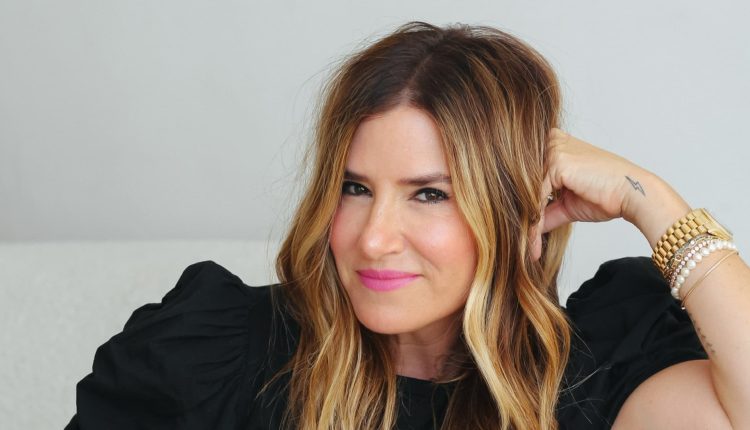48-year-old worked herself ‘into the ground’ building a $255 million business—then her life fell apart
Alli Webb knows that her life probably looked exciting and glamorous from the outside.
The co-founder of Drybar spent nearly a decade, starting in 2010, growing her mobile hair-styling side hustle into a popular chain of salons that now has more than 160 locations across the U.S. The company was acquired by Helen of Troy in 2019 for roughly $255 million, and Webb racked up accolades and startup fame along the way.
“I knew my life was going to change forever,” Webb, 48, tells CNBC Make It.
But a thriving business isn’t always a recipe for happiness. Within seven years of launching Drybar, “everything was starting to unravel for me personally,” she says.
She and her first husband, Drybar co-founder Cameron Webb, divorced after 16 years of marriage. Her mother died from cancer. Her teenage son went to rehab for addiction issues.
Webb buried herself in work, avoiding those difficulties until they were too large to ignore — a topic she tackled in her book “The Messy Truth,” which published in November 2023, and continues to talk about today.
“I wish I had paid more attention while I was in it, so it didn’t crash down the way it did,” says Webb. “I think sometimes our rock bottoms and everything crashing down is how we learn.”
Specifically, she learned how to recognize and address signs of burnout, and prioritize her mental health without feeling like she was sacrificing her career or family, she says. Here’s how.
Face your problems head on
In 2018, Webb experienced what she described in her book as her “great depression.” She was burnt out, both physically and emotionally, and internalizing a great deal of self-inflicted guilt from her decision to end her marriage and her son’s subsequent struggles.
“Am I ruining my family? Our lives?” Webb asked herself at the time, she wrote.
Those struggles were a result of her unwillingness to fully reckon with problems in her life, and their effects on her, while they were happening, she says. Drybar helped her avoid confronting her feelings about her marriage falling apart or recognizing the toll the divorce took on her two children.
“I was very [much] on this fast track and not paying attention,” says Webb, adding: “We distract ourselves when we don’t want to deal with s—. Every human does it. I had to look at some stuff that I was unwilling to look at for a long time and had just hoped it would go away. But it never did.”
What finally helped Webb turn things around was a conversation with Brené Brown.
The bestselling author and professor of social work helped her realize she never fully acknowledged the trauma of her divorce or her mother’s death, and her guilt over her son’s struggles, Webb says. She began to do just that, embracing mental health remedies like therapy, meditation, journaling, daily exercise and running.
Therapy and journaling have particularly stuck with her. “Talking it through with somebody is a big deal,” she says, and writing down your thoughts and feelings often helps people process their emotions or cope with depression or anxiety.
“It’s like, get that stuff out of your head and onto paper. That, in and of itself, is so alleviating when you’re dealing with something hard,” says Webb.
Prioritize your mental health over work
Other methods may work best for other people. The important part is simply committing to prioritizing your mental health, Webb says.
“I could never see myself working myself into the ground [again] the way I did when we were growing Drybar,” she says. “It was like a badge of honor.”
For her, that means not feeling guilty whenever the need for personal time pulls her focus away from either work or her family. “I think a lot about self-mastery and discipline [to regularly do] the things that I know are better for me,” says Webb.
She’s still busy today: After Drybar, Webb co-founded other companies like massage startup Squeeze, and currently serves as president of humidifier brand Canopy. But she no longer allows her work to get in the way of her mental health, she says — which is easier to accomplish when you have financial stability and a high-quality support system, she acknowledges.
Still, Webb no longer wants anyone to approach their work like she did at Drybar, including her current employees.
“As long as you’re getting everything done, I don’t care how many physical hours you work,” she says. “That’s the mind shift that I hope to see in the world more. It’s like, let’s get our work done. But let’s also enjoy our lives.”
DON’T MISS: Want to be smarter and more successful with your money, work & life? Sign up for our new newsletter!
Get CNBC’s free Warren Buffett Guide to Investing, which distills the billionaire’s No. 1 best piece of advice for regular investors, do’s and don’ts, and three key investing principles into a clear and simple guidebook.
Read the full article here

